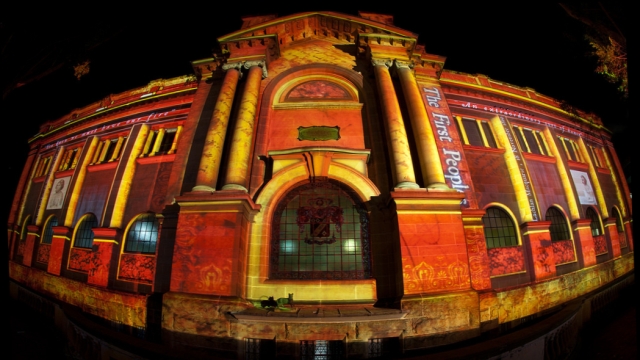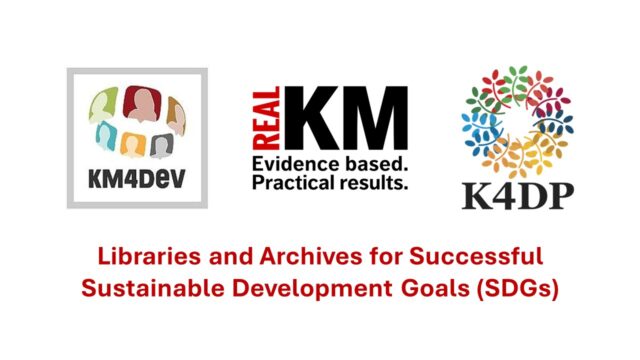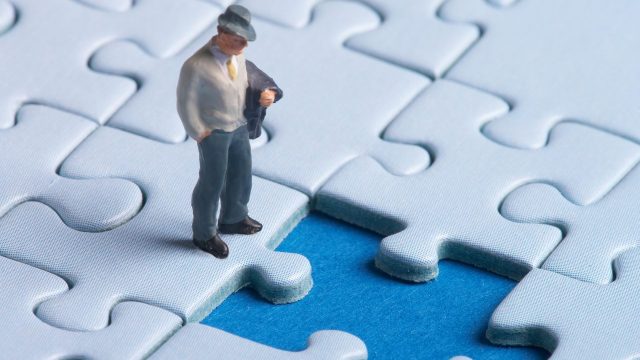
How public libraries contribute to the STEAM agenda
In previous articles, we’ve looked at libraries as community hubs and libraries as innovation incubators. An important related role for public libraries into the future is supporting the STEAM (science, technology, engineering, arts and mathematics) agenda.
STEAM programs add art to the STEM curriculum by drawing on design principles and encouraging creative solutions. Governments across the world agree that for countries to thrive in today’s knowledge-based economy, their workforces need a strong STEAM skills base.
In March 2017, more than 100 leaders from public libraries across Australia, Asia, eastern and western Europe and the Americas gathered at the State Library of New South Wales (NSW) for the STEAM into Sydney conference. STEAM into Sydney celebrated the innovative ways that public libraries are supporting the STEAM agenda.
From conference presentations, the report How public libraries contribute to the STEM agenda has been produced by the ALIA Australian Public Library Alliance as an advocacy document to show what can be achieved through local government investment and library staff skills and creativity.
The report showcases examples of public library STEAM initiatives from Australia and around the world. Summaries are given below, and further details can be found in the report.
The Discovery Club in Sydney libraries
The Little Bang Discovery Club is a partnership between the Children’s Discovery Museum and public libraries in 25 locations around Sydney. It targets pre-schoolers and early primary school aged children and their families, aiming to develop knowledge and skills that inspire early scientific exploration, discovery and learning – the hallmarks of critical thinking and innovation.
Code Club at Leichhardt Library
Code Club Australia assists 50,000 children to learn to code though 1,500 clubs nationwide, as part of the worldwide Code Club, a not-for-profit organisation based in the UK. Leichhardt Library staff launched Code Club at Leichhardt Library in November 2015. Sessions run for four weeks during the school term and are designed for a junior ‘tween’ audience. The curriculum uses Scratch, a free online programming website developed by MIT, and Trinket, a free online programming website that allows users to create and edit HTML and CSS code as well as using Python programming language.
Port Macquarie-Hastings Imaginarium and Tech Room
The Imaginarium is a fully equipped recording studio, available free to all library members. It contains a high-end iMac, Mbox Pro, a suite of professional grade software programs, amplifiers, video camera, green screen, as well as instruments and equipment available on request. Port Macquarie-Hastings has a burgeoning arts and music scene and the Imaginarium addresses an increasing need in the local area. The space has been booked week after week since its launch in July 2015. Users include musicians, dancers, actors, video editors, podcasters and hypnotherapists.
Launched in 2016, the Tech Room contains a range of equipment including 3D printers, 3Doodlers, Spheros, MakeyMakeys, Raspberry Pi’s, a drone, as well as virtual reality equipment like Oculus Rift, HTC Vive, and Samsung GearVR. While 3D printers were not completely new to libraries most of the other equipment was a first. Most of the equipment is transportable.
City of Perth Knowledge Week
Perth Knowledge Week was a celebration of ideas, thinking and learning. It started with a major literary event with actor and author Richard Roxburgh, who spoke on the importance of libraries, literacy and how reading instills a sense of creativity and wonder in our children. A discussion forum followed with three of Perth’s leading lights in innovation and technology. All sessions during the week focused on specific aspects of STEAM, from how big science and the Square Kilometre Array is ‘finding needles in a cosmic haystack’ to running pop-up sessions on CoderDojos and virtual and augmented reality gaming.
STEAM in practice at City of Ryde
Investment in a new library and refurbished branches provided the opportunity for City of Ryde to explore STEAM opportunities. Library staff began with an idea about creating a space which supported children’s science and technology literacy and decided on a large mural with a steam punk theme with two large embedded touchscreens, a collection of science kits available for loan, two large museum style microscopes, a curiosity cabinet with illuminated boxes including an x-ray viewer, 12 drawers containing a range of objects, and with four iPads mounted with educational games. Other features were a storytelling chair, dodo-shaped children’s chairs, and a range of distorting mirrors for bay ends. Since the work has been completed, the programs team and staff have provided nearly 20 science based activities.
The Learning Space, Rhodes, City of Canada Bay
The Learning Space is a library without print books located in The Connection, City of Canada Bay’s community and cultural precinct in Rhodes. It offers digital resources, access to online library collections, and creative learning programs exploring emerging digital technologies such as CAD design, robots, electronics, photography, video, music and coding. The facility has a success with the community, with the school holiday program well subscribed, the after-school robot club a sell-out, and over 70 families attending baby rhyme time. For families with English as a second language, there are storytimes in Korean and Chinese, Tech Savvy Seniors sessions in Mandarin, and collections in many languages and formats available online.
Tech events in Geelong
In 2015, Geelong Regional Library Corporation opened the award-winning Geelong Library & Heritage Centre (GLHC) as a flagship central library and centre of digital technology for the community.
At Pivot Summit 2016, Patti Manolis, Geelong Regional Libraries CEO, and Justine Hyde, Director of Library Services and Experience at the State Library Victoria, told business entrepreneurs and innovators about the vital role of public libraries in our digital future. They explained that libraries provide a range of hardware, software, and emerging technologies from hardwired to tablets to Raspberry Pi to robotics, to 3D printing to open source computing to eknow-how sessions and skilled, professional staff. The day after Pivot Summit, GLHC played a central part in the Pivot Connect community festival.
GLHC was also chosen as the location for the Geelong Digital Learning Network school maker fair. The major events space of the library was transformed into a convention space providing a “circuit training” rotation for students to experience technologies. The introduction of a robotics program by Geelong’s Children’s and Youth Services Team has been highly successful.
Cumberland Libraries teach programming and coding
Cumberland Council Libraries provides a STEM program for young children that will encourage their understanding of the concepts of science and engineering. Arduino was trialled as a new, innovative approach to engage school-aged students. A programming method was selected over coding due to it being more user-friendly. Programming is based upon graphical blocks that already exist, with the user needing to drag and drop them in the correct sequence to get the program to work. Coding is more complex and requires strict punctuation and syntax. In addition, the children were introduced to a SPRK+ (Schools, Parents, Robots, Kids). The SPRK+ is a robotic waterproof ball programmed by a range of apps.
Creative participation and practice, City of Sydney Library
In response to the increased demand for affordable and accessible creative participation opportunities, City of Sydney Library partnered with Pine Street Creative Arts Centre to deliver a series of workshops during 2016. The trial series offered introductory workshops in drawing, printmaking and ceramics. New for 2017 is the City of Sydney Youth Curators program. This program brings together creative young people aged between 15–18 to curate and participate in a series of collaborative meetups and events called The Outlandish Library in 2017. Young people explore diverse creative practice: from writers to dancers, set designers to singers, animators to actors, coders to painters, filmmakers to musicians and all the many hybrid fusions in-between.
The Edge – Case studies in practical STEAM
State Library of Queensland (SLQ) The Edge has spent the last seven years empowering creative experimentation across art, science, technology and enterprise for urban and remote communities in Queensland. Two examples are Creative Community Computing and I Made a Cubby. Creative Community Computing is a long-term project that looks to develop ICT self-sufficiency in marginalised communities, working with reclaimed corporate ICT hardware. ICT self-sufficiency means that by the conclusion of the program, the participant will have developed a foundational understanding of how a personal computer works. The I Made a Cubby project invites families to work with designers to realise a bespoke cubby house for their children. This program provides the necessary training for parents to fabricate their design using maker technologies.
Inspiration and ideas from the State Library of New South Wales
The State Library of New South Wales hosted a seminar Makers, Craftivists and Public Libraries in May 2015. A couple of industry experts joined the seminar via Google Hangouts to share their experiences: Jessica Pigza and Leanne Praine. To expand the opportunities for public library staff in regional and remote locations to access seminar sessions, presentations were uploaded to YouTube, and information was also shared through Storify, blog posts, and Slideshare. Part of the aim of the seminar was to encourage people to think about partnerships, so presentations from people from Indigenous Digital Excellence, dLUX MediaArts, and Three Farm helped library staff see that there were other groups and organisations they could work with.
Canada: New Medialab and Fab Lab for Quebec
In February 2017, the Brossard Public Library launched its Fab Lab, a new digital learning space for its community. It is open to everyone, children, teens, students, artists, entrepreneurs, professionals and creators. Fab labs provide widespread access to modern means for invention, and can be found across the world. Activities in fab labs range from technological empowerment to peer-to-peer project-based technical training to local problem-solving to small-scale high-tech business incubation to grass-roots research. A few weeks after STEAM into Sydney, Repentigny Public Libraries opened a new Medialab, a multimedia laboratory developed with, and for the use of, young people.
New Zealand: Lower Hutt clubhouses for disadvantaged young people
Hutt City Libraries runs a Clubhouse after-school program for 10-18 year-olds in two of its highly deprived communities. It is a free program, run by library staff and volunteer mentors. The Hutt City program is part of The Clubhouse Network, an international community of 100 Clubhouses located in 19 countries, providing youth with life-changing opportunities for over 23 years. Each Clubhouse provides a creative, safe, and free out-of-school learning environment where young people from underserved communities work with adult mentors to explore their own ideas, develop new skills, and build confidence in themselves through the use of technology.
Norway: Bergen’s Digital Arena
Digital technology and knowledge are at the core of Bergen Public Library’s Digital Arena. The goal is to turn the library into an arena of learning, debates and experiences in the fields of new media and digital technology. In the Digital Arena, Lær Kidsa Koding! (Teach Kids Code!), inspired by the British Code Clubs, is working to provide children with an introduction to computer programming. The library hosts an entry level course for children, teaching children the basics of coding. The library also offers a separate code club for refugees and immigrants. As there are fewer girls in Code Club, the library holds a separate Girl Tech Party once a year.
Sweden: Manufacturing skills for asylum-seekers
In the south of Sweden, Vaggeryd’s joint public and upper secondary school library is the site of the first makerspace in Sweden, opened in 2013. Over the last four years, makerspace programs have evolved to meet the technical skills needed in a community where furniture making is the main industry. There are workshops on robotics, lessons in CAD drawing, and the library is home to an upholstery machine that has enabled asylum-seeking unaccompanied minors to learn upholstery and carry out furniture repair as a social enterprise.
Article source: How public libraries contribute to the STEM agenda 2017 is licensed under CC BY-NC-SA 4.0, Wikipedia is licensed under CC BY-SA 3.0.
Header image source: Adapted from State Library of NSW by Steve Collis, which is licensed by CC BY 2.0.






